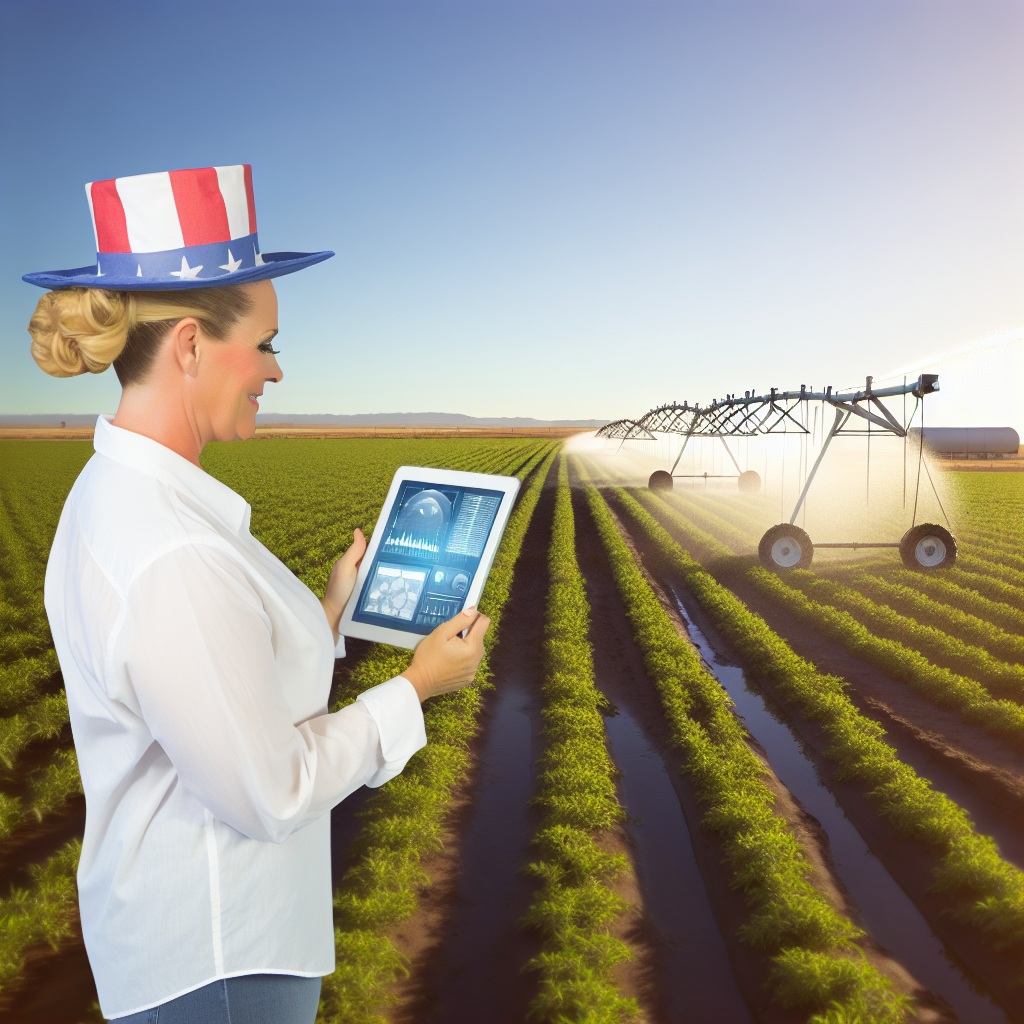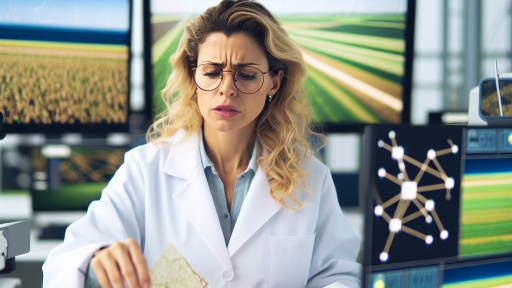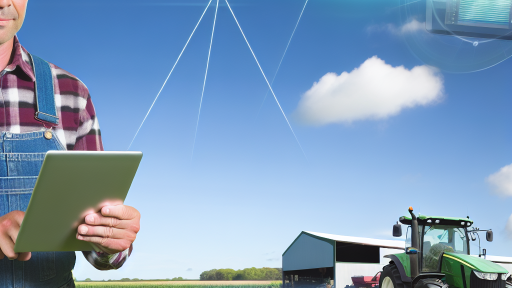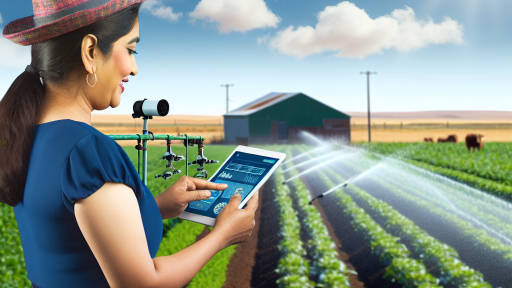Introduction to Smart Irrigation Technology
What is Smart Irrigation?
Smart irrigation refers to advanced systems that optimize water usage in agriculture.
These systems utilize data technology to enhance irrigation efficiency.
They adapt water supply based on weather conditions and plant needs.
Overall, smart irrigation boosts crop yields and conserves water resources.
Components of Smart Irrigation
Smart irrigation systems consist of several essential components.
- Sensors measure soil moisture levels.
- Automation controls water flow based on real-time data.
- Weather stations provide forecasts to inform irrigation schedules.
Together, these components create a comprehensive irrigation solution.
Benefits of Smart Irrigation
Implementing smart irrigation yields numerous advantages.
- It significantly reduces water waste.
- Farmers can achieve higher crop productivity.
- Smart systems can lower labor costs through automation.
Ultimately, these benefits contribute to sustainable agricultural practices.
Case Studies and Success Stories
Various farms have successfully implemented smart irrigation solutions.
For instance, Greenfield Farms decreased water usage by 30% using smart technology.
Furthermore, Sunnyvale Orchards reported a 20% increase in fruit yields.
These examples illustrate the transformative impact of smart irrigation.
Challenges and Considerations
Despite its advantages, smart irrigation technology faces challenges.
- Initial setup costs can be high for small farmers.
- Technology adoption requires training and support.
- Maintenance of equipment is essential for optimal performance.
Addressing these challenges is crucial for widespread adoption.
Understanding Soil Moisture Levels and Plant Needs
The Importance of Soil Moisture
Soyl moisture plays a vital role in crop health.
Transform Your Agribusiness
Unlock your farm's potential with expert advice tailored to your needs. Get actionable steps that drive real results.
Get StartedIt directly influences plant growth and yield.
Moreover, different crops have varying moisture requirements.
Measuring Soil Moisture
Farmers can utilize sensors to monitor soil moisture levels accurately.
These sensors provide real-time data for informed decisions.
Regular monitoring helps in timely irrigation interventions.
Plant Water Needs
Each plant species has specific water needs for optimal growth.
Understanding these needs promotes efficient irrigation practices.
Crops like corn require more water than drought-resistant varieties.
Furthermore, growth stages also dictate water requirements.
Implementing Smart Irrigation
Smart irrigation systems adjust watering schedules based on moisture readings.
This approach minimizes water wastage while maximizing crop yield.
Additionally, integrating weather forecasts enhances these systems’ efficiency.
Benefits of Monitoring Soil Moisture
Regular moisture checks improve overall crop management.
They reduce the risk of overwatering or under-watering crops.
Healthy crops result in better market value and higher profits.
Key Takeaways on Soil Moisture
Understanding soil moisture levels is crucial for successful farming.
Farmers should employ technology to optimize irrigation practices.
Ultimately, this knowledge leads to sustainable agricultural practices.
Types of Smart Irrigation Systems
Drip Irrigation
Drip irrigation delivers water directly to the plant’s roots.
This method reduces water wastage significantly.
Farmers can precisely control water application rates.
It minimizes evaporation and runoff, ensuring efficiency.
Moreover, drip irrigation improves crop yields through consistent moisture levels.
It also reduces the risk of disease by keeping foliage dry.
Showcase Your Farming Business
Publish your professional farming services profile on our blog for a one-time fee of $200 and reach a dedicated audience of farmers and agribusiness owners.
Publish Your ProfileFarmers typically use this method for high-value crops.
Investing in drip systems often leads to long-term savings in water costs.
Sprinkler Irrigation
Sprinkler irrigation mimics natural rainfall.
This method distributes water through a network of pipes and valves.
It can cover large areas quickly and efficiently.
Farmers often prefer sprinklers for crops in open fields.
Additionally, this method is versatile and can be adapted to different crops.
Sprinkler systems can also be automated for better control.
However, it may lead to increased water loss due to evaporation.
Overall, it is suitable for various terrains and soil types.
Comparison of Drip and Sprinkler Irrigation
Drip systems excel in water efficiency and precision.
On the other hand, sprinklers cover larger areas quickly.
Farmers must consider crop type when choosing a system.
Both methods have unique advantages and applications.
The best choice depends on specific farming needs.
See Related Content: Vertical Farming Equipment Essentials for Efficient Farming
Benefits of Smart Irrigation for Crop Yields
Efficient Water Use
Smart irrigation maximizes water efficiency in agriculture.
It uses sensors to monitor soil moisture levels.
As a result, farmers can apply water precisely when needed.
This technology reduces water waste significantly.
Consequently, crops receive optimal moisture for growth.
Enhanced Crop Health
Smart irrigation contributes to improved crop health.
It helps maintain consistent soil moisture levels.
Healthy plants are more resilient against diseases and pests.
This leads to reduced dependency on chemical treatments.
Ultimately, farmers experience higher yields and better profits.
Cost Savings
Implementing smart irrigation systems leads to cost savings.
Lower water usage results in decreased utility bills.
Moreover, efficient irrigation minimizes labor costs.
Farmers can allocate resources to other essential tasks.
As a result, the overall return on investment improves.
Environmentally Friendly Practices
Smart irrigation promotes environmentally sustainable practices.
It reduces the carbon footprint associated with excessive watering.
Additionally, it protects local water resources from depletion.
By using less water, farmers contribute to ecosystem health.
Furthermore, this approach aligns with global sustainability goals.
Data-Driven Decision Making
Utilizing smart irrigation fosters data-driven farming decisions.
Farmers gain valuable insights through data analytics.
This information allows them to optimize watering schedules.
Additionally, farmers can predict crop needs more accurately.
Showcase Your Farming Business
Publish your professional farming services profile on our blog for a one-time fee of $200 and reach a dedicated audience of farmers and agribusiness owners.
Publish Your ProfileIn turn, this leads to improved overall farm management.
Gain More Insights: Choosing the Right Sensors for Your Crops
Case Studies: Successful Implementation of Smart Irrigation
Smart Irrigation at Green Valley Farms
Green Valley Farms implemented a smart irrigation system in 2021.
This system utilized soil moisture sensors to optimize water use.
As a result, the farm saw a 25% reduction in water consumption.
Additionally, crop yields increased by 15% during the first year.
This success showcased the benefits of technology in agriculture.
Innovations at Terra AgriTech
Terra AgriTech developed a mobile application for smart irrigation management.
The app allows farmers to monitor their fields in real time.
Farmers can receive alerts about soil moisture levels.
This feature helps prevent overwatering and promotes sustainability.
Users reported a significant increase in crop performance and savings.
Impact on Local Communities
Smart irrigation technology has transformed local farming communities.
Farmers have collaborated to adopt these innovative practices.
This partnership enhances knowledge sharing and resource management.
Consequently, communities experience improved food security.
These developments lead to a more sustainable future.
The Role of Government Support
Government initiatives promote the adoption of smart irrigation technologies.
Subsidies encourage farmers to invest in advanced systems.
Training programs help farmers effectively utilize these tools.
This support strengthens agricultural resilience and productivity.
Collaborative efforts enhance the overall ecosystem health.
Delve into the Subject: Automated Machinery in Precision Agriculture

Integrating Weather Data for Optimized Irrigation Scheduling
The Role of Weather Data
Weather data significantly impacts irrigation practices.
Farmers can use this information for effective water management.
Utilizing real-time weather data helps reduce water waste.
Additionally, it improves crop health and yield.
Sources of Weather Data
Farmers can access various sources of weather data.
Local weather stations provide accurate forecasts.
Satellite data offers a broader perspective on weather patterns.
Mobile applications also deliver timely alerts for farmers.
Automated Irrigation Systems
Automated systems utilize weather data for irrigation scheduling.
These systems adjust water application based on precipitation forecasts.
Such automation not only saves time but also conserves resources.
Moreover, it minimizes human error in water management.
Data Analytics for Decision Making
Data analytics plays a crucial role in optimizing irrigation.
Farmers can analyze historical weather patterns for better planning.
They can then predict future irrigation needs accurately.
Using analytics improves overall farm productivity significantly.
Integrating Technology with Traditional Practices
Combining technology with traditional farming practices enhances efficiency.
Showcase Your Farming Business
Publish your professional farming services profile on our blog for a one-time fee of $200 and reach a dedicated audience of farmers and agribusiness owners.
Publish Your ProfileFarmers can incorporate weather data insights into their routines.
This integration leads to sustainable irrigation solutions.
Furthermore, it helps maintain soil health and crop quality.
You Might Also Like: Benefits of Sensor Technology for Modern Farmers
Challenges and Solutions in Adopting Smart Irrigation
Technological Barriers
Many farmers face challenges when integrating new technologies.
Lack of access to high-speed internet can limit smart irrigation use.
Additionally, the learning curve for advanced technologies can be steep.
Furthermore, high initial costs deter some growers from investing.
Infrastructure Limitations
Adequate infrastructure is crucial for effective irrigation systems.
Old piping and water systems may not support modern demands.
Many regions lack the proper storage facilities for harvested rainwater.
Moreover, drought-prone areas see less investment in irrigation upgrades.
Financial Constraints
Many farmers operate within tight financial margins.
Smart irrigation systems can require significant upfront investments.
Moreover, smallholder farmers often lack access to financing options.
Additionally, government subsidies for these technologies may be limited.
Knowledge Gaps
There is a noticeable lack of awareness regarding smart irrigation benefits.
Many farmers are unaware of available technologies and solutions.
Training programs can help bridge these knowledge gaps effectively.
Collaborations with agricultural experts can also improve understanding.
Environmental Considerations
Water scarcity is becoming an increasing environmental concern.
Efficient irrigation can alleviate some of this strain on resources.
However, farmers must also consider local ecosystems when implementing systems.
Balancing efficiency with ecological considerations is essential for sustainability.
Innovative Solutions
Technology companies are developing solutions for these challenges.
Smart sensors can provide real-time data on soil moisture levels.
Moreover, affordable financing options are becoming more accessible.
Educational programs can enhance farmer knowledge and skills.
Additionally, government incentives can encourage adoption.
Future Trends in Smart Irrigation Technology and Crop Management
Integration of IoT Devices
Smart irrigation systems increasingly utilize Internet of Things devices.
These devices monitor soil moisture in real-time.
As a result, farmers can optimize water usage efficiently.
Moreover, IoT devices can provide data-driven insights.
This leads to more informed decision-making in irrigation practices.
Use of Artificial Intelligence
Artificial intelligence is transforming crop management strategies.
AI algorithms analyze climatic conditions and soil data.
Consequently, they recommend optimal irrigation schedules.
This innovation enhances crop resilience against drought.
Farmers benefit from increased yields and reduced resource waste.
Advancements in Sensor Technology
Recent advancements have improved soil sensor capabilities.
Showcase Your Farming Business
Publish your professional farming services profile on our blog for a one-time fee of $200 and reach a dedicated audience of farmers and agribusiness owners.
Publish Your ProfileModern sensors can detect various soil properties effectively.
These properties include pH levels, nutrient content, and temperature.
Thus, farmers can tailor irrigation methods to specific crop needs.
The precise management leads to healthier plant growth over time.
Cloud Computing for Data Management
Cloud computing streamlines data collection and analysis.
Farmers can access irrigation data anytime, from anywhere.
This accessibility fosters collaboration among agricultural experts.
As a result, coordinated efforts lead to better resource allocation.
Farmers can track trends and refine practices easily.
Promotion of Sustainable Practices
Smart irrigation supports sustainable agricultural practices.
Water conservation becomes a primary focus for many businesses.
This shift helps preserve water resources for future generations.
Farmers adopting smart irrigation technologies often see economic benefits.
Additionally, they contribute positively to their local ecosystems.
Enhanced Applications in Agriculture
Smart irrigation represents a significant leap in agricultural technology.
With ongoing advancements, farmers will continue to enhance crop yields.
Furthermore, the integration of these technologies promotes sustainable farming.
The future of agriculture looks promising with smart irrigation solutions.
Additional Resources
AI in Agriculture and Farming: Revolutionizing Crop Growth – Intellias
Precision Agriculture: Benefits and Challenges for Technology …




